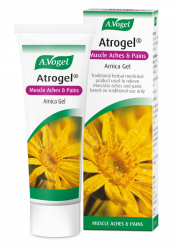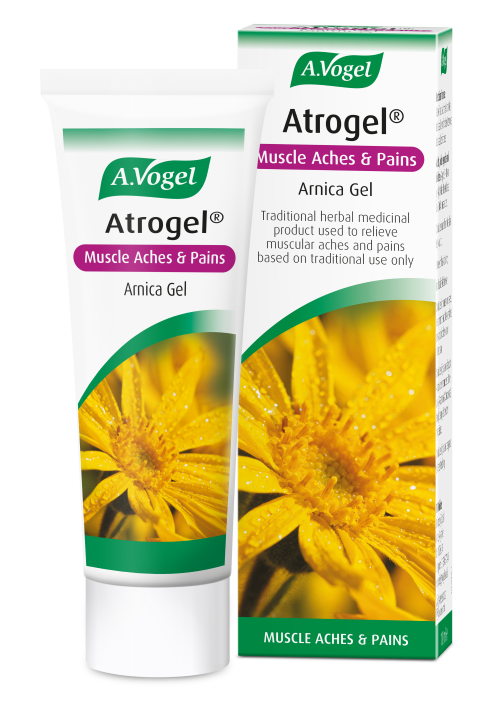Did you know?
Peanut butter is a great food to fuel up on before a 5K or 10K because of its low GI, high carbohydrate and high protein content.
What to eat before a 5K or 10KThis blog will look at some common questions around exercise and will point out the amazing ways it can help you. Here's what we will cover:
I really cannot emphasise it enough – exercise brings SO many benefits!
For mental health alone, exercise can be amazingly beneficial. In fact, experts are beginning to recognise it as a viable treatment option for the likes of anxiety, depression and loneliness.1
Exercise releases chemicals like serotonin and dopamine2 which make us feel happy and rewarded. It also affects neurotransmitters in the brain, bringing further improvements to mood by making the way messages pass along nerve pathways more efficient. The great thing about these particular benefits is that they come instantly, giving people the motivation to keep exercising as time goes on.
More generally, exercise can also be an effective distraction from the pressures of modern life – technology, say, or work stress.
Immune health is something that we have all been thinking about recently and guess what? Exercise is beneficial here too.3
Exercise encourages the production of T cells and cytokines, which are part of the immune system and help to keep our bodies healthy.4 During exercise, blood circulation ramps up to pump these immune cells around all areas of the body.
It's no secret that our heart health can be improved with regular exercise. Research shows it can benefit high blood pressure, high cholesterol and even reduce the risks of strokes and heart attacks.5
Exercise gets the blood pumping and helps to reduce the likelihood of the fatty build ups on the artery walls that contribute to heart issues. It's also quite helpful in reducing inflammation, which can be another risk factor for heart problems.
Ok, this one isn't a surprise either – exercise helps weight management. We all know that! But did you know that exercise could be more beneficial than dieting when it comes to weight loss?
This is because dieting relies on changes in habit, such as cutting out your favourite milkshake forever or foregoing the biscuits at snack time, which are quite hard to stick to. However, because we can see the benefits achieved by exercise quickly and find enjoyment in the activities themselves, it becomes less challenging to maintain than, say, never eating a chocolate bar ever again!
Burning all that energy on the treadmill makes falling asleep at night less of a challenge than if you were to spend hours on the sofa. Also, by bringing some improvements to stress and mood, this could have a knock-on effect at night, meaning you're less wound up and more able to drift off instead.
Lastly, as we get older, physical exercise is of even more importance. It slows aging processes and prevents disease, including some of those listed above such as cardiovascular disease.
There's no one way to go about exercising. In fact, exercise comes in many forms. It could be walking your dog or using the stairs rather than the lift in your building. It could be dancing, gardening, running, hiking or doing pull-ups whilst watching the television. As long as you're moving, this counts as exercise!
There's no precise formula to achieve optimal health through exercise, but a lot of attention has been given to the idea that 150 minutes per week is what we should be aiming for. This is because lots of research has shown that 150 minutes reaps the most benefit to our health.6 However, we must remember that, even if we manage less than 150 minutes per week, this will still provide some health benefits.
How much exercise we are able to do will also depend on factors like age, health, background and ability. So, the key is not to give yourself a hard time when exercise is challenging. Remember, some movement is better than nothing and, if you begin to do exercise more regularly, you'll see improvements to your fitness and then it's easier to add in a bit more to keep reaping the benefits.

Muscles feeling achy after working out? Try Arnica gel to soothe muscle aches and pains!
"Very impressed with the arnica gel."

On his YouTube channel, Joe Wicks is a massive fan of HIIT workouts – high-intensity interval training. In fact, a quick search of YouTube provides a vast number of athletic individuals all proclaiming the "amazing" and "hardcore" benefits of this form of exercise. True, HIIT workouts are cardio (hint – good for heart health!) so there's good reason to give them a try. However, we don't get fit from doing this type of exercise alone.
As I have already mentioned, lots of types of exercise count towards our active goals and mixing up your workouts ensures that different areas of the body get attention. Over time, this will be beneficial for overall fitness. We might want to do a little more to help build up strength in the arm and leg muscles through weightlifting, for example, or work on endurance by increasing walking distance.
So, there's no one type of exercise that is going to turn you into the next Joe Wicks; but keeping it varied will certainly help to improve general fitness.
Find out how increasing your walking speed could benefit your health.
It is human instinct to hold onto our energy reserves and turn down challenging activities. In fact, studies show that given the option between stairs and escalators, people are much more likely to use escalators.7 So, exercise isn't a 'natural' activity and we shouldn't give ourselves a hard time if it feels difficult to do. However, that being said, there are a few tips that can help you to keep exercise up long-term.
Have fun – first of all, make sure you enjoy exercise. Clubs are a great way to socialise and get moving or trying something new (tennis, line dancing, badminton) can be quite invigorating.
Make exercise part of everyday life - think, can you jog whilst the kids are at their after-school clubs? Can you walk to your local shops rather than driving to the nearest supersized supermarket? Can you take your friends' dog out once a week? Whatever you choose, once exercise becomes habit, you'll hardly even think about it!
Socialise whilst you exercise - at the gym or on a run you may see other people, but there's no strong social connection there. So, ask your friends to join you on an activity. You are less likely to find excuses to forego a workout when someone else is relying on you turning up. Also, having a friend there provides moral support and a distraction from the challenges of working out.
Use technology – if exercise bores you, this is a good way to make things more exciting! There are so many podcasts to listen to these days; or simply pop on your favourite upbeat tunes.
Set some goals – having something to work towards can be really motivating, plus there's always going to be that sense of pride once a challenge has been ticked off!
Nowadays, many people have sedentary office jobs, or enjoy using their downtime to chill out, rather than work out. This means that we have to find new ways to get the heart rate up and the body working. Hopefully, this blog has given you some new ideas to try and has highlighted the importance of staying active in the first place. Happy moving!
1 https://kclpure.kcl.ac.uk/portal/files/48157113/1_s2.0_S0022395616300383_main.pdf
2 https://www.ncbi.nlm.nih.gov/pmc/articles/PMC4703784/
3 https://www.ncbi.nlm.nih.gov/pmc/articles/PMC5911985/
4 https://www.researchgate.net/profile/Michael_Gleeson/publication/6758486_The_T_cell_and_NK_cell_immune_response_to_exercise/links/09e4150c59a6b9b7b1000000/The-T-cell-and-NK-cell-immune-response-to-exercise.pdf
5 https://www.ncbi.nlm.nih.gov/pmc/articles/PMC6172294/
6 https://www.ncbi.nlm.nih.gov/pmc/articles/PMC6536904/
7 https://journals.sagepub.com/doi/abs/10.1177/0013916513520418
 Looking for a treatment to relieve pain in conditions such as muscle aches or pains, stiffness, rheumatic pain or after sporting injuries?
Looking for a treatment to relieve pain in conditions such as muscle aches or pains, stiffness, rheumatic pain or after sporting injuries?
Buy now from your local store.
“Excellent product, really helps with pain relief.”![]()
To find local independent stores in your area that sell Atrogel Arnica gel, simply type your postcode below.

Peanut butter is a great food to fuel up on before a 5K or 10K because of its low GI, high carbohydrate and high protein content.
What to eat before a 5K or 10KBalance Mineral Drink helps to replace electrolytes and reduce fatigue, making it the perfect post-workout recovery drink!
Learn moreJoin Hetty and Martin in the A.Vogel gardens to improve your flexibility.
View flexibility videosDiscover the story of Alfred VogelNature is just about the best thing we’ve got!